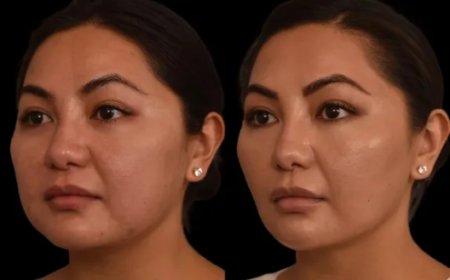The Benefits of Group Therapy in Outpatient Mental Health Programs
In this blog, we'll explore the many advantages of group therapy in outpatient settings and why it's a valuable tool for emotional recovery.

Group therapy has become a cornerstone of modern outpatient mental health care, offering individuals a unique opportunity to connect with others facing similar challenges. By fostering a sense of community and mutual support, group sessions complement individual therapy and enhance overall treatment outcomes.
What Is Group Therapy in Outpatient Mental Health Care?
Group therapy involves a licensed mental health professional leading a structured session with several participants. Each session typically centers around a specific theme, such as anxiety management, trauma recovery, or relationship skills. These groups are a vital part of many outpatient mental health programs, providing peer support in a guided, therapeutic environment.
Key Benefits of Group Therapy
1. Shared Understanding and Connection
One of the most powerful aspects of group therapy is realizing you're not alone in your struggles. Participants can relate to each other's experiences, which reduces feelings of isolation and promotes empathy.
2. Learning from Others' Perspectives
Hearing how others cope with similar challenges introduces new strategies and viewpoints. Group members can offer encouragement, advice, and support based on their personal journeys.
3. Safe Space for Self-Expression
Group therapy creates a confidential, nonjudgmental space for participants to discuss sensitive emotions, fears, and setbacks. This openness fosters emotional growth and resilience.
4. Enhanced Social Skills and Communication
Engaging in group discussions helps individuals practice effective communication, conflict resolution, and active listeningskills that translate to healthier relationships in daily life.
5. Accountability and Motivation
Being part of a supportive group encourages members to stay committed to their treatment goals and apply coping techniques between sessions.
Common Types of Group Therapy in Outpatient Programs
-
Anxiety and stress management groups
-
Depression support groups
-
Trauma recovery groups
-
Substance use relapse prevention groups
-
Social skills training groups
Is Group Therapy Right for You?
Group therapy is an excellent option if you:
-
Feel isolated or misunderstood in your struggles
-
Want to develop better interpersonal skills
-
Are interested in gaining diverse coping strategies
-
Benefit from shared accountability and encouragement
Frequently Asked Questions (FAQs)
Q1: Is group therapy as effective as individual therapy?
A: Group therapy can be just as effective, especially when combined with individual sessions. Many outpatient mental health programs recommend a mix of both.
Q2: How large are group therapy sessions?
A: Most outpatient groups consist of 6 to 12 participants to ensure everyone has the opportunity to participate.
Q3: Is everything shared in group therapy confidential?
A: Yes, confidentiality is a core principle of group therapy, with participants and facilitators agreeing to respect each other's privacy.
Q4: Can I join more than one therapy group?
A: Many programs allow individuals to participate in multiple groups based on their needs and interests.
Q5: Are group therapy sessions covered by insurance?
A: Most insurance plans that cover outpatient mental health services also include group therapy, though coverage details vary.
Final Thoughts
Group therapy is a valuable, evidence-based component of outpatient mental health care. It fosters connection, encourages personal growth, and equips individuals with the skills needed for lasting emotional wellness. Whether addressing anxiety, depression, trauma, or relationship issues, participating in group sessions can provide meaningful support on the path to recovery.






























